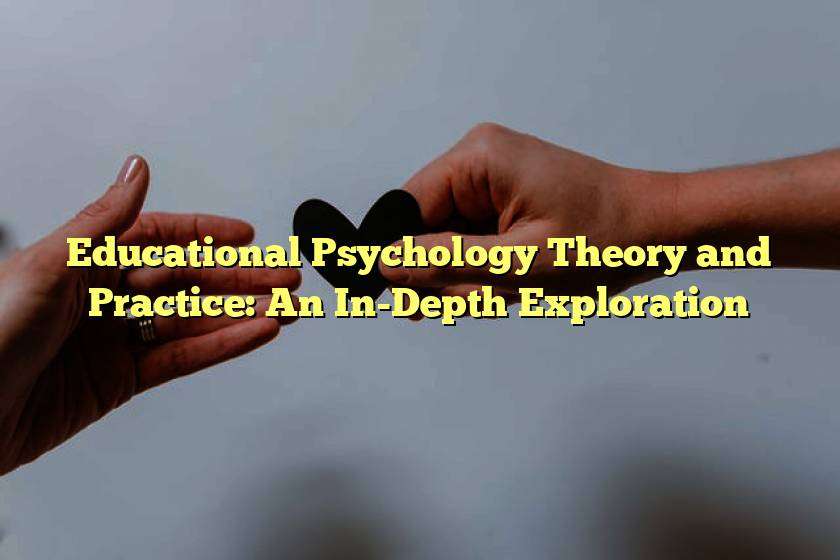As individuals, we all have unique ways in which we learn and understand the world around us. Educational psychology is the study of how people learn, from the initial stages of cognitive development through to adulthood. This field encompasses a vast range of topics, including but not limited to learning styles, child development, neuropsychology, and educational assessment.
In practice, educational psychologists strive to ensure that all students are given access to the highest quality of education possible. They work in various settings such as schools, colleges, and universities to design and implement programs that can benefit students in different ways. In this article, we will delve into the theory and practice of educational psychology, highlighting its significance and impact on the educational system.
The Theories of Educational Psychology
Theories in educational psychology have evolved over time and continue to be refined. They can be divided into three main categories: behavioral, cognitive, and constructivist.
Behavioral Theory
In simple terms, behavioral theories state that the environment shapes behavior. The most influential figure in behavioral psychology is B.F. Skinner, who proposed the idea of operant conditioning. According to Skinner, positive reinforcement increases the probability of a behavior occurring in the future, while punishment decreases its probability. Behaviorists believe that all behaviors, including learning, can be explained by environmental cues.
Cognitive Theory
Cognitive theorists argue that the mental processes of learners, such as problem-solving and critical thinking, are essential in understanding learning. According to cognitive theorists, individuals learn through the modification and organization of their mental structures. This theory is credited to Jean Piaget, who believed that cognitive development proceeded in a series of stages.
Constructivist Theory
Constructivism holds that knowledge is not absorbed from the environment but rather constructed by the learner based on their experience. Learning is an active process that involves social interaction and reflection. Cognitive constructivism refers to the idea that learners construct their knowledge by reflecting on their experiences, whereas social constructivism emphasizes the importance of learners interacting with their peers and instructors to create new knowledge.
The Practice of Educational Psychology
The practice of educational psychology involves the application of various theories and principles of psychology to the educational system. This is accomplished through assessments, interventions, research, and the development of programs that are designed to optimize students’ learning abilities.
Assessments
Educational psychologists often perform assessments to evaluate a student’s cognitive development and learning outcomes. These assessments take various forms, including standardized tests, observations, interviews, and surveys. From these assessments, educational psychologists gain a better understanding of a student’s strengths and weaknesses and develop strategies to help them optimize their learning.
Interventions
Interventions refer to the specific programs, strategies, and solutions formulated by educational psychologists to optimize learning. These can involve implementing evidence-based interventions designed to improve a student’s learning experiences. Such programs might include personalized instruction or group interventions aimed at improving specific skills, such as reading or math.
Research
Educational psychology research is vital in informing practice. Educational psychologists carry out research to investigate the various factors that can influence learning. For instance, they might study the effects of class size on learning outcomes or the impact of technology on cognitive development. The insights gained from this research inform the development of interventions and strategies to improve educational outcomes.
The Development of Programs
Educational psychologists often work collaboratively with teachers, school administrators, and policymakers to develop programs aimed at optimizing learning. These programs might take different forms, including curricula, educational policies, and interventions. The goal of these programs is to support students in their learning journey and foster a supportive and engaging learning environment.
Conclusion
Educational psychology theory and practice play a crucial role in shaping the education system. By understanding how people learn, educational psychologists can develop programs and interventions that optimize the learning experience for students. Whether through assessments, interventions, research, or the development of programs, educational psychologists are critical in ensuring that every student has access to the highest quality of education possible.



